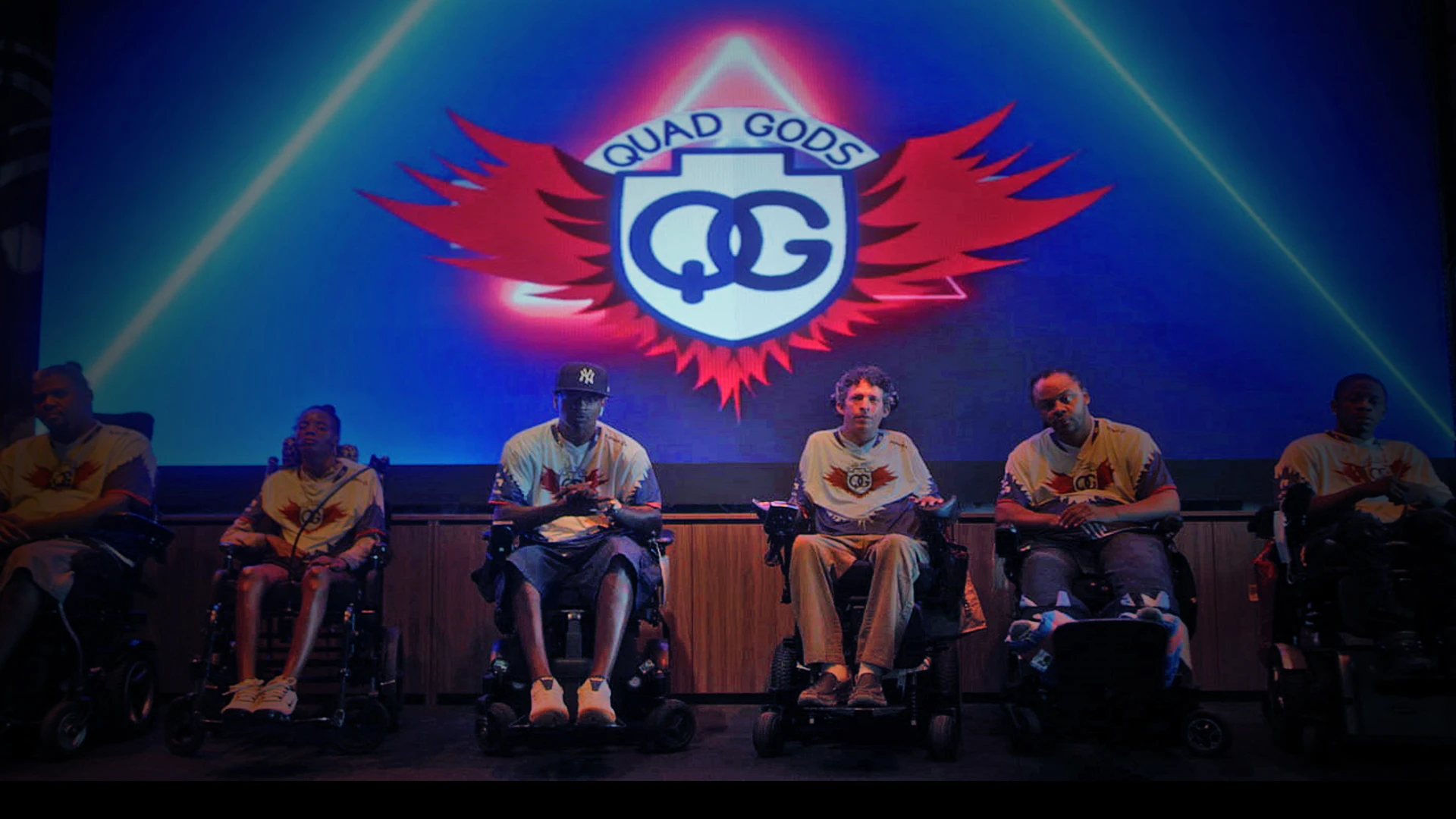When David Putrino, PhD, Director of Rehabilitation Innovation for the Mount Sinai Health System, first met Chris Scott, who was seeking help adjusting to his quadriplegia, Dr. Putrino wasn’t sure how he could help.
After discovering Mr. Scott had a passion for competitive video gaming, Dr. Putrino came up with an idea: Invite other Mount Sinai patients with spinal cord injury to form a team, with the mission to show the world that even people with severe disabilities can play just as competitively as people who don’t have a disability.
They assembled a team of seven other people from diverse backgrounds, all with quadriplegia, united by their determination to win. They began practicing together and played against non-disabled teams online, often beating them.
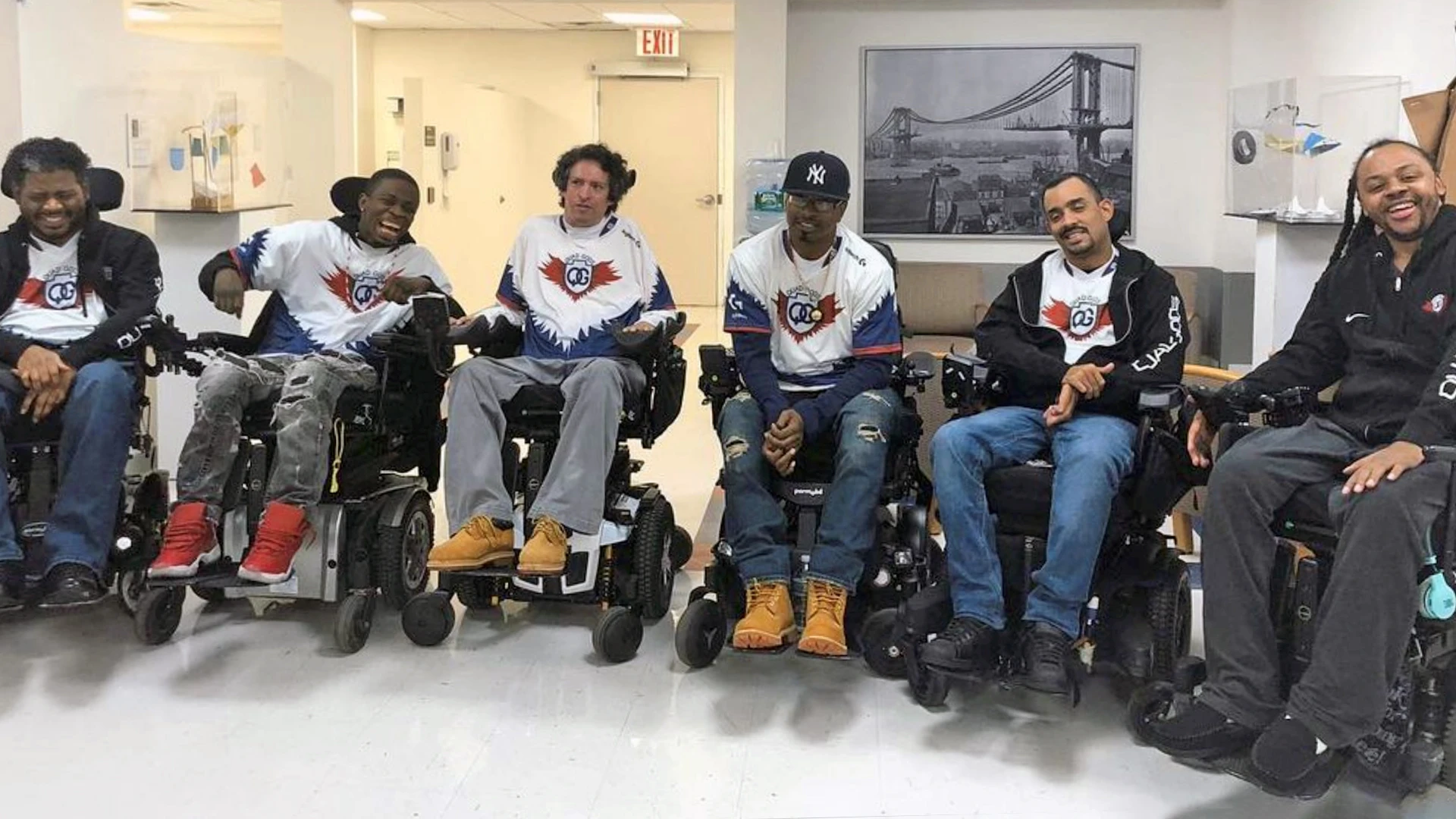
Members of the Quad God competitive e-sports team at the Abilities Research Center.
They named the team “Quad Gods” because, as member Blake Hunt explains, “In our minds we’re all gods of our own lifestyle.” Dr. Putrino, in turn, was dubbed the “Quadfather.”
Their activity caught the attention of billionaire entrepreneur Mark Cuban, whose foundation donated $60,000 to get the Quad Gods up and running as a professional eSports team. Logitech also donated state-of-the-art gaming equipment to make the whole team, which has become incorporated, competitive with some of the best players in the world.
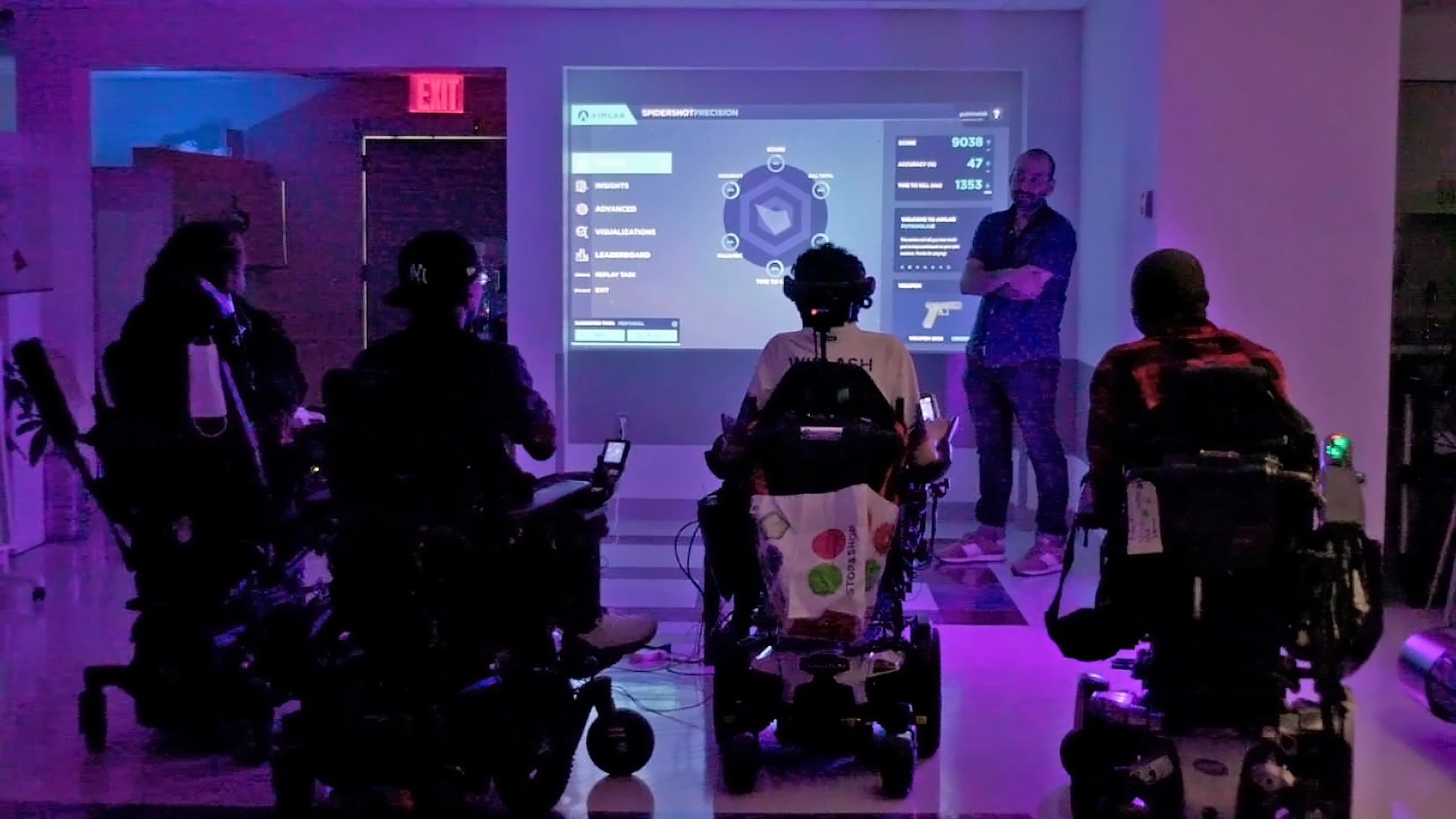
For his role in helping put together the Quad Gods team, David Putrino, PhD (back), was dubbed the "Quadfather" by the team members.
Because of the group’s advocacy, Logitech teamed up with Mount Sinai and two other organizations, Able Gamers Charity and Adaptive Action Sports,to launch the first-ever nationwide annual adaptive Xbox tournament. The event is now in its third year.
The Quad Gods will also be the subject of an upcoming feature-length HBO documentary.
The Birth of Quad Gods
Mr. Scott had been a former skydiving instructor who logged more than 6,000 jumps. But in 2014 he ran into freak weather that resulted in a crash that broke his neck, and left him unable to move his arms and legs.
Struggling to find a new path to his life, he approached Angela Riccobono, PhD, who runs a program at Mount Sinai called the “Transitions Group” that helps people with spinal cord injury adjust to their disabilities, in March 2019. She suggested Mr. Scott see Dr. Putrino, also co-director of Mount Sinai’s Abilities Research Center, whose work involves providing technology to people with disabilities to improve their daily lives.
But Mr. Scott’s paralysis was so severe, the next step wasn’t clear at first. “I was nervous that I would fail him,” Dr. Putrino says.
Prior to Mr. Scott’s injury, he was in good shape and accustomed to a lot of body autonomy, so very big adjustments were needed.
When Dr. Putrino asked Mr. Scott what activities he enjoyed, Mr. Scott replied that he loved video gaming and that he had continued playing even since his injury. Having never seen someone with this level of paralysis play video games, Dr. Putrino asked Mr. Scott to show him how he does it.
Mr. Scott asked Dr. Putrino to reach into his backpack and retrieve a device called a QuadStick, an adaptive joystick that allows eSports players with disabilities to control a console using movements of the head, mouth, and tongue.
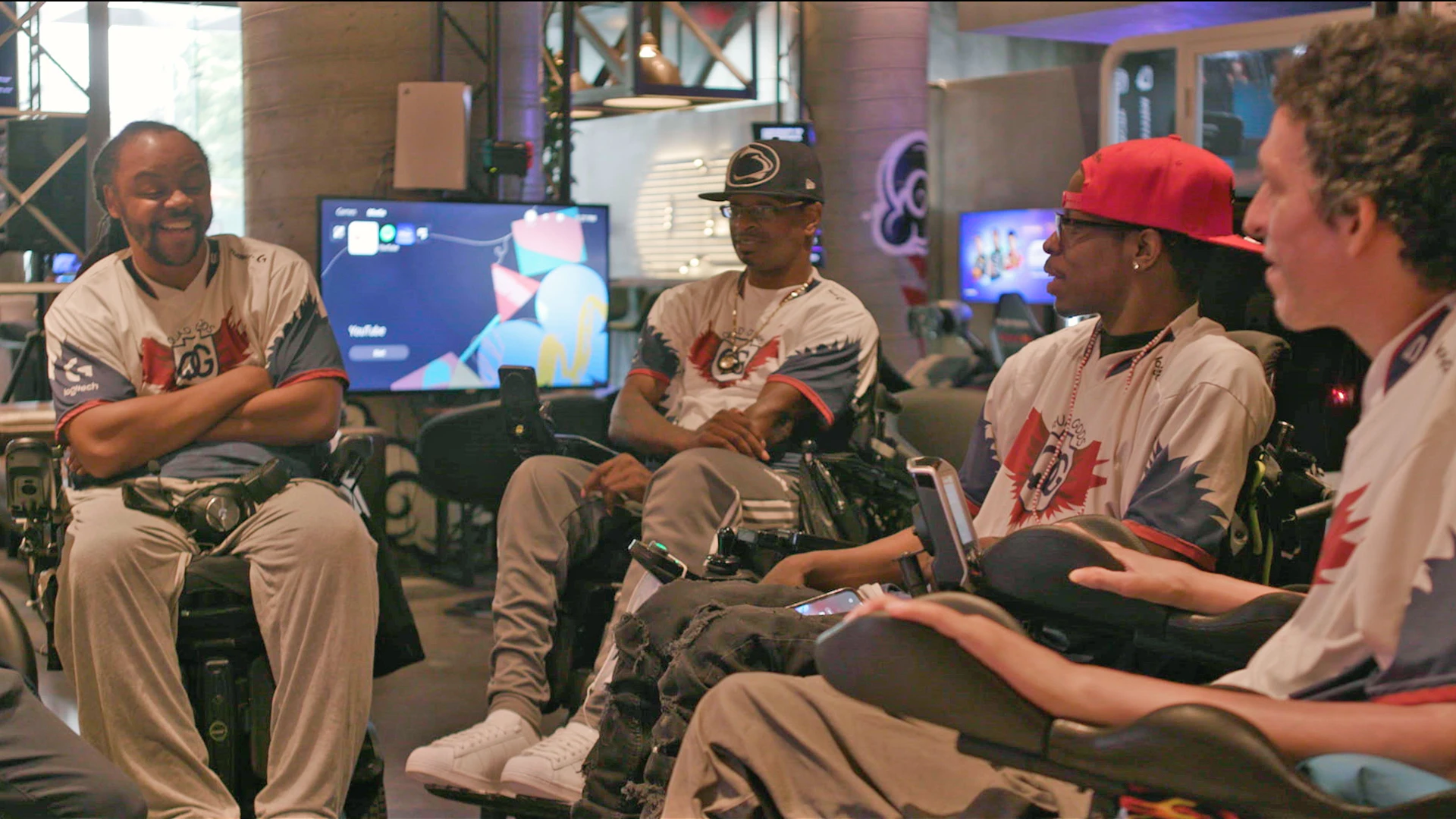
The Quad Gods have held their own going up against non-disabled teams, and have attracted the support of entrepreneurs and sponsors.
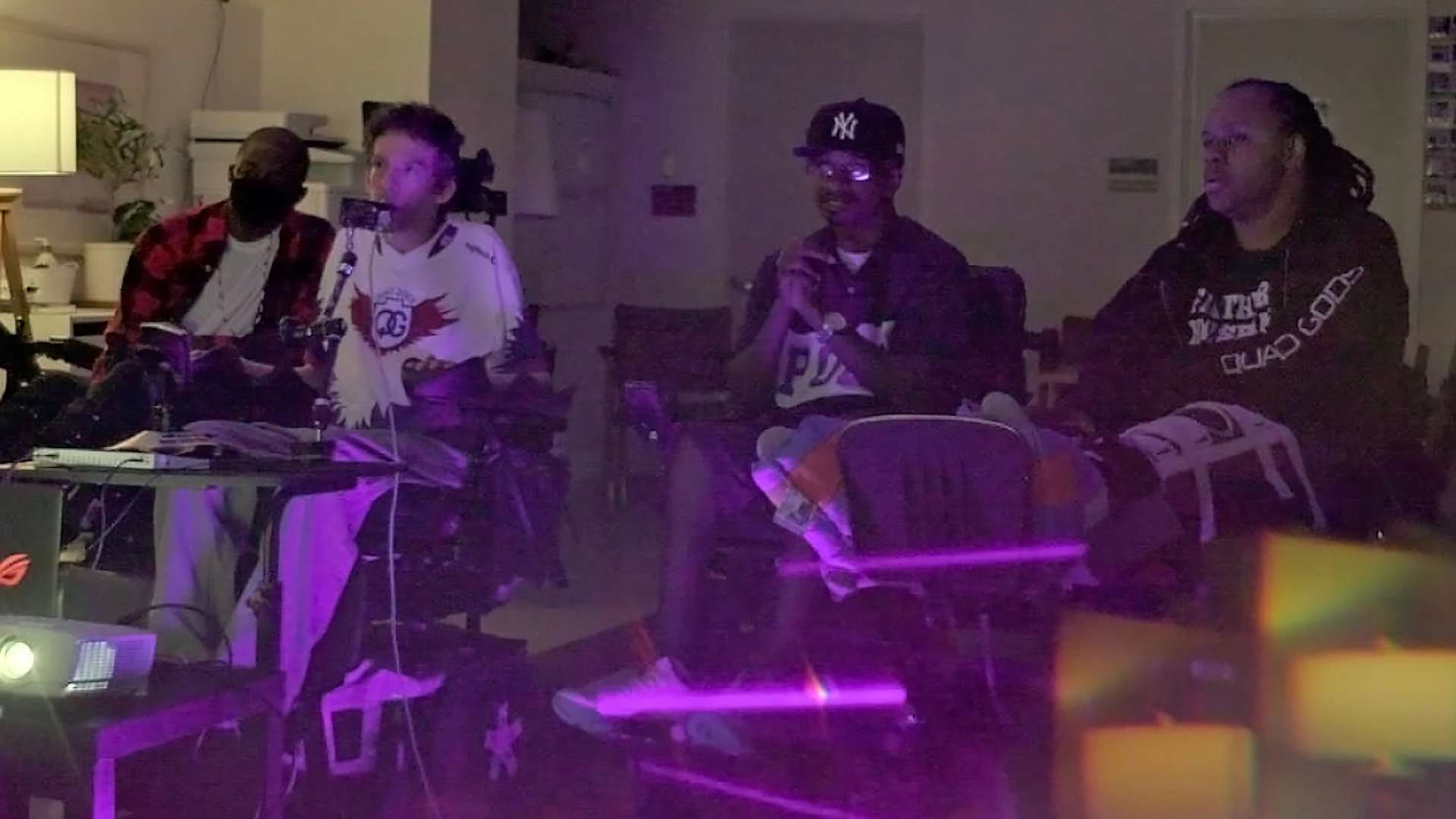
Prior to the formation of Quad Gods, members had been patients of the Abilities Research Center.
They plugged the QuadStick into a gaming console at the Center and loaded up a basketball video game. ”He pretty soundly beat me in a game of NBA 2K on Xbox, just by moving his head and mouth,” Dr. Putrino says. “I was blown away. He wasn’t just ‘good for someone with a spinal cord injury.’ He was really good, period.”
Sadly, just as the team was taking off in July 2019, Mr. Scott passed away from a chest infection. Dr. Putrino recalls their last interaction at the Abilities Research Center just a few days prior.
“Do you really think we can do this?” Mr. Scott had asked as he was leaving the Center.
“You already are, man,” Dr. Putrino said. “This is for real.”
And now, Dr. Putrino adds, he and Quad Gods have been working to keep that promise since.
“It’s really just incredible to see the Quad Gods pushing through all those stereotypes and showing the world they can be just as competitive in this domain as any individual who is not disabled,” Dr. Putrino says.
Featured
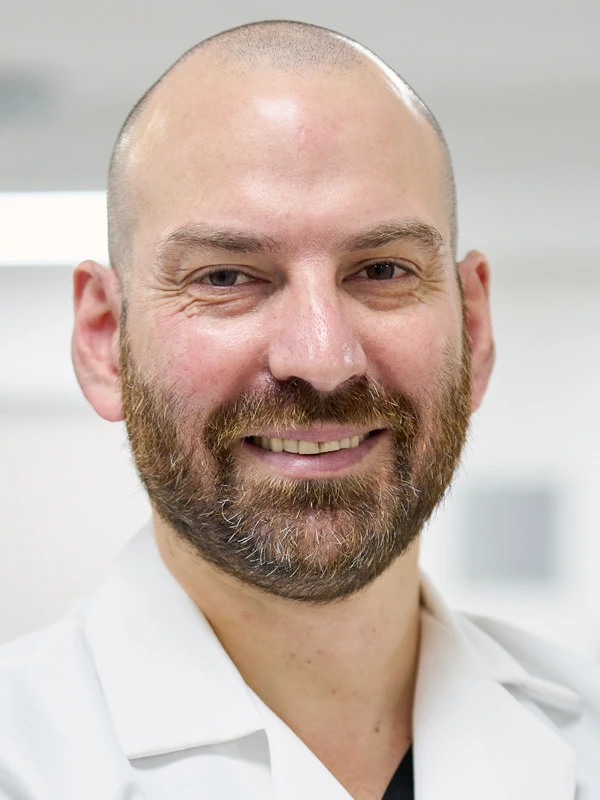
David Putrino, PhD
Director of Rehabilitation Innovation, and Professor of Rehabilitation and Human Performance
